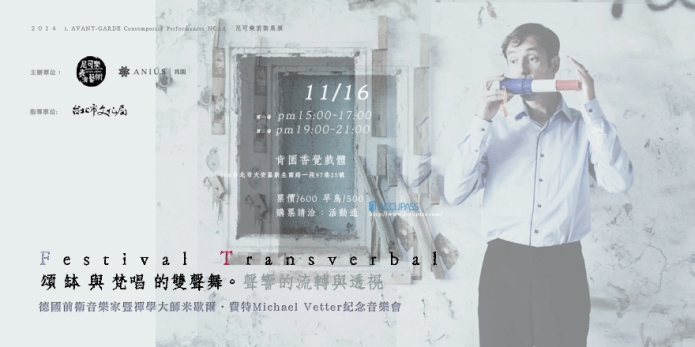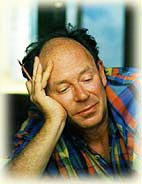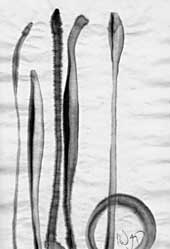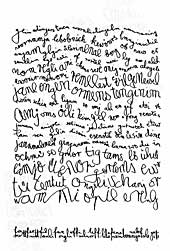A gong resounds on the groundfloor of a spa. Through the mezzanine situated at the spa’s glass façade, its sound waves travel to the basement, where a voice answers the gong. A multi-level dialogue begins, in more than one sense of the word. Instruments and voices, audience and performers mingle in a unique sound-space-event that tests the limits of music, mind & body.
Festival Transverbal is dedicated to the memory and legacy of the German multi-medial artist Michael Vetter, who passed away, aged 70, on December 7, 2013. It bridges an ongoing search for sound’s soothing inner secrets with its more expressive post-modern/avant-garde forms.
Expect voices, singing bowls, sheng (mouth organ), a gong, performers moving through the space, an immersive 60-minute sonic surrounding. Talk to or play with the musicians afterwards!
Through this Festival we keep alive the spirit and works of Michael Vetter, who inspired many musicians, artists, and other individuals along his extremely versatile and moving career in Europe and Asia. Michael Vetter had an incredible output of art works (starting at age 5); compositions, LPs/CDs; tours and performances; and educational methods for (experimental) flute, voice and instruments, among many other things. His musical career spanned the period from his late school years (early 1960s) until the months before his death (september 2013), when he worked on pieces by Karlheinz Stockhausen that many musicians have played and performed piecemeal, while none really gave them a try in their entirety. Thus, shortly after his death, Natascha Nikeprelevic, Vetter’s foremost successor, and Stockhausen Verlag worked on the publication of Expo, one of Stockhausen’s scores with pluses and minuses (+ -) as guiding points. Vetter recorded it with Nikeprelevic and FX Randomiz 8 weeks before he passed away. (The CD appeared in May of this year, listen here).
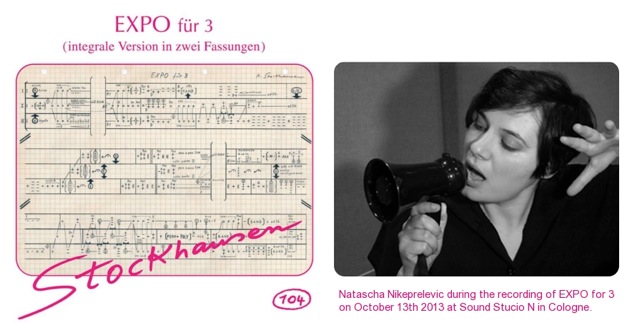
Michael Vetter’s visit to Taiwan, together with Natascha Nikprelevic, left a great impression on those who had the chance to see/hear them or work with them, during their residency at the Taipei National University of Arts, where Chung Minder from the Theatre Department invited them.
Michael Vetter always straddled the paths outside clear-cut styles, usually combining elements from here and there, and most of all relying on his own experimental genius to create fresh insights and sounds at every moment. His long-time affiliation with zen in Japan and outspoken zen themes in the 1980s aliened him from some of his former avant-garde colleagues, who shied away from (or were not interested in) anything to do with Eastern “spirituality”. However, looking back on his life in its entirety, it is clear that Vetter was dedicated to creative imagination and disciplined, daily musical and artistic rituals, above anything else. For Vetter, the world itself was constantly exploding with creation, unfolding, coming-into-existence, into a myriad forms, colours, sounds. He observed this world with intelligence, humor, commitment and compassion. His love and dedication to the arts and existence (‘Dasein’) as a whole was the starting point for his creative response to them. Or rather, it seemed he was able to let creative forces take their course through him, as a critical, subtle moderator.

Michael Vetter making Indian ink drawings, Academia Caparaia, Italy, 2009
It is in this spirit of capturing the uniqueness of every meeting (between performers, with a certain space and with a certain audience, at a given time) that we want to inaugurate a Festival which we hope to repeat in following years.
We prepared this Transverbal Festival in collaboration with Canjune Spa and Nicole’s Creative agency. It will be held on Sunday, November 16 at Canjune Spa. There are two identical concerts, you can join us either in the afternoon (3 PM) or in the evening (7 PM). The participants are Hans de Back, Lu Chi-Chung and Lee Wei-Lin, Li Li-Chin and Mark van Tongeren, and probably a few more musical assistants.
For more information and tickets, please follow this link to accupass.
Limited number of tickets!
Please also note that there will be a limited number of seats in the space, and limited storage space for your bags. Do not bring your own food/drinks.
We believe this concert will be less suitable for young children.


